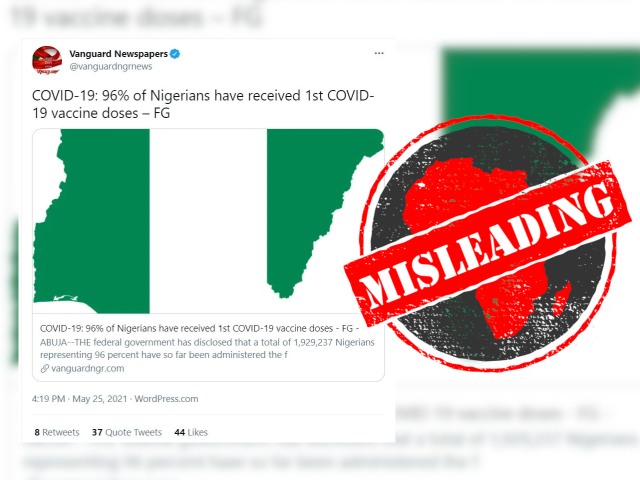“Breaking news! Igbo herdsmen kidnapped Hausa Fulani children from Kano, converted to Christianity and sold them for slavery in Anambra!,” announces a 13 October 2019 Facebook post.
“CAN is not saying anything about it, Nigerians consider if it were to be Muslims that committed this evil act, what will happened by now? #SayNotoSlavery #JusticeForAll.”
CAN is the Christian Association of Nigeria.
The post shows photos of the nine kids who were recently rescued by police after being kidnapped from Kano state in north-west Nigeria and sold in Anambra, a state in the country’s south-east.
The police said the children were victims of human trafficking.
The post taps into the ethnic and religious debates that followed the rescue.

According to media reports, the suspects arrested for kidnapping the children were of the Igbo ethnic group. But none of them was a “herder”.
The term “Igbo herdsmen” mimics “Fulani herdsmen”, a term used for herders of the Fulani ethnic group, some of whom have been accused of masterminding kidnappings and other violent crimes in parts of Nigeria.
In a statement, the Islamic group Muslim Rights Concern referred to the kidnap of the nine kids as “kidnapping for Christ”.
It also claimed some Christians were deliberately kidnapping and forcefully converting Muslim children to Christianity.
The leadership of the Christian Association of Nigeria in the northern region refuted the claim about the abducted children being forcefully converted to Christianity.
The Christian group said there was no evidence that the kidnapping and sale of the children was for a religious purpose. – Allwell Okpi
“CAN is not saying anything about it, Nigerians consider if it were to be Muslims that committed this evil act, what will happened by now? #SayNotoSlavery #JusticeForAll.”
CAN is the Christian Association of Nigeria.
The post shows photos of the nine kids who were recently rescued by police after being kidnapped from Kano state in north-west Nigeria and sold in Anambra, a state in the country’s south-east.
The police said the children were victims of human trafficking.
The post taps into the ethnic and religious debates that followed the rescue.

Fulani herdsmen to ‘Igbo herdsmen’
According to media reports, the suspects arrested for kidnapping the children were of the Igbo ethnic group. But none of them was a “herder”.
The term “Igbo herdsmen” mimics “Fulani herdsmen”, a term used for herders of the Fulani ethnic group, some of whom have been accused of masterminding kidnappings and other violent crimes in parts of Nigeria.
No evidence
In a statement, the Islamic group Muslim Rights Concern referred to the kidnap of the nine kids as “kidnapping for Christ”.
It also claimed some Christians were deliberately kidnapping and forcefully converting Muslim children to Christianity.
The leadership of the Christian Association of Nigeria in the northern region refuted the claim about the abducted children being forcefully converted to Christianity.
The Christian group said there was no evidence that the kidnapping and sale of the children was for a religious purpose. – Allwell Okpi
Republish our content for free
For publishers: what to do if your post is rated false
A fact-checker has rated your Facebook or Instagram post as “false”, “altered”, “partly false” or “missing context”. This could have serious consequences. What do you do?
Click on our guide for the steps you should follow.
Publishers guideAfrica Check teams up with Facebook
Africa Check is a partner in Meta's third-party fact-checking programme to help stop the spread of false information on social media.
The content we rate as “false” will be downgraded on Facebook and Instagram. This means fewer people will see it.
You can also help identify false information on Facebook. This guide explains how.





Add new comment